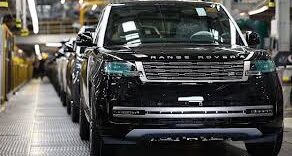Sales of British-made cars to the US saw a surprise boost in July, following the rollout of the new UK-US tariff agreement. According to data from the Society of Motor Manufacturers and Traders (SMMT), exports rose 6.8% after three months of steady declines.
The sharp rise comes after a turbulent few months. In April, US President Donald Trump increased import tariffs on UK cars from 2.5% to a staggering 27.5%, rattling the automotive sector. But by May, negotiators agreed to cut the rate back to 10%, effective from the end of June a move clearly reflected in July’s improved figures.
The SMMT highlighted that July’s numbers “illustrate the impact of this deal” but also cautioned that British car manufacturing still faces significant challenges overall.
“The US remains the largest single national market for British-built cars, underscoring the importance of the UK-US trade deal,” the organization said.
However, the tariff-friendly 10% rate only applies to the first 100,000 vehicles exported to the US roughly the volume shipped last year. Any cars beyond that face the full 27.5% tariff, making exports above this threshold costly.
In July, the US accounted for 18.1% of all UK car exports. But the European Union remains the dominant market, absorbing 45.6% of British car exports.
Colleen McHugh, Chief Investment Officer at Wealthify, pointed out the US market’s crucial role, especially for premium British brands. “It is a key market for luxury automakers like Jaguar Land Rover (JLR),” she said.
JLR temporarily halted US shipments in April after the tariff hike but resumed exports in May once the deal was announced.
Overall, UK car production increased for the second month in a row in July, thanks to gains in both domestic sales and exports. Yet, production for the year so far remains down by 11.7% a drop that includes both cars and commercial vehicles. In fact, UK car manufacturing hit its lowest level since 1953 just last month.
Industry experts blame this slump on a mix of rising UK labor costs, tougher global competition, and the ongoing fallout from Brexit.
Mike Hawes, SMMT’s chief executive, weighed in on July’s positive numbers: “It remains a turbulent time for automotive manufacturing, with consumer confidence weak, trade flows volatile, and massive investment in new technologies underway both here and abroad.
“Given this backdrop, another month of growing car output is good news.”






